The History of Our Teams
Even though moving Good News Productions from Rhodesia (now Zimbabwe) to Joplin was a very difficult decision, it opened the door for contact with many missionaries and international students from Ozark Bible College (now Ozark Christian College) and various universities. This could not have been done in Rhodesia, especially at that time, when the borders were closed to other countries.
The work expanded quickly, and the first addition to the Joplin property was added in March 1980. By 1983, it became necessary to expand again with larger studios, increased staff members, a library, and housing for project workers. This facility was dedicated on March 16, 1985.
From the beginning, a flagship of GNPI has been cultural sensitivity. Placing communication specialists around the world and developing partnerships were keys to accomplishing this. It became apparent that centers in other places would greatly enhance the goals of Good News Productions, International. We believe that God has led in a dramatic way as the right people rose to the challenge of establishing regional centers.
India
1989



Dr. Vijay Lall, husband of Pushpa and father of David and Ajai, had arranged for David to visit GNPI in Joplin. David was unaware of this plan. As Dr. Lall prayed, God opened the door for an internship program in 1982. David had a degree in electronics from India and had taken further work at Cincinnati Bible Seminary. He rewired the entire audio studio and worked hard while in Joplin.
David caught a vision for the use of video, which would soon begin to explode in India. By 1985, he had already started a Hindi radio broadcast in cooperation with Gospel Broadcasting Mission and LaVerne Morse. David was ready to move into videotape production and asked Ziden to come for a visit in January 1986. It seemed feasible that video could be a major step forward in supplying many of the new house churches with their Sunday lesson material since there were so few evangelists. His home city (not mentioned due to security risk) was a perfect location because of several ministries that were part of the Mid-India Christian Mission. The women’s ministry could provide costumes. Teachers and students in the school could be actors and actresses, and local Bible institute teachers could record Bible lessons.
Carl Lawrence, a Christian leader and missionary speaker for the Haven of Rest radio broadcast, was already working with Dr. Lall to translate his book, "The Church in China" into Hindi as they could see a similar movement breaking out in India. Dr. Donald McGavran was known as the father of the church growth movement. He was the founder and dean of the Fuller Theological Seminary's School of World Mission. Dr. McGavran encouraged Carl to get involved with GNPI to build a studio in India. It was then suggested that Ziden connect with both men.
Carl went with Ziden to India in January 1988 to discuss the entire strategy. Thirty-four Indian representatives met with them for the discussions. Groundbreaking took place on Jan 19, 1988, at the close of that visit, and the dedication service for the first unit was held August 27, 1989.
Great strides were made as Bible series and several documentaries were being produced. The government’s attention was captured by the concept of local productions in the national language of Hindi. They even made requests for some programs that were Bible-based.
Dr. McGavran said, "This [videos for house churches] is probably the most important project of this century . . . it is possibly the best way an impact can be made on India."
On April 7, 1993, an ex-Hindu high priest sat with six other ex-Hindus in a hotel. He held up a videotape and said, “This is why I’m a Christian.” Then they all watched the nationwide broadcast of a program GNPI-India produced entitled, “Young Eyes” about the care at a Christian hospital to help with eye disease.
On Christmas Eve and Christmas Day of 1993, “The Birth of Christ” was broadcast to over 100,000,000 people in Hindi on Doordarshan, the national satellite network covering India.
Today, the GNPI-India team produces Hindi Church Online each week. It now regularly receives over 1.5 million plays weekly! The team also creates programs for national broadcasts and dramatic series on social media. These coworkers face increasing scrutiny and persecution, but they persevere in sharing the gospel in this Hindu nation.
Thailand
1993

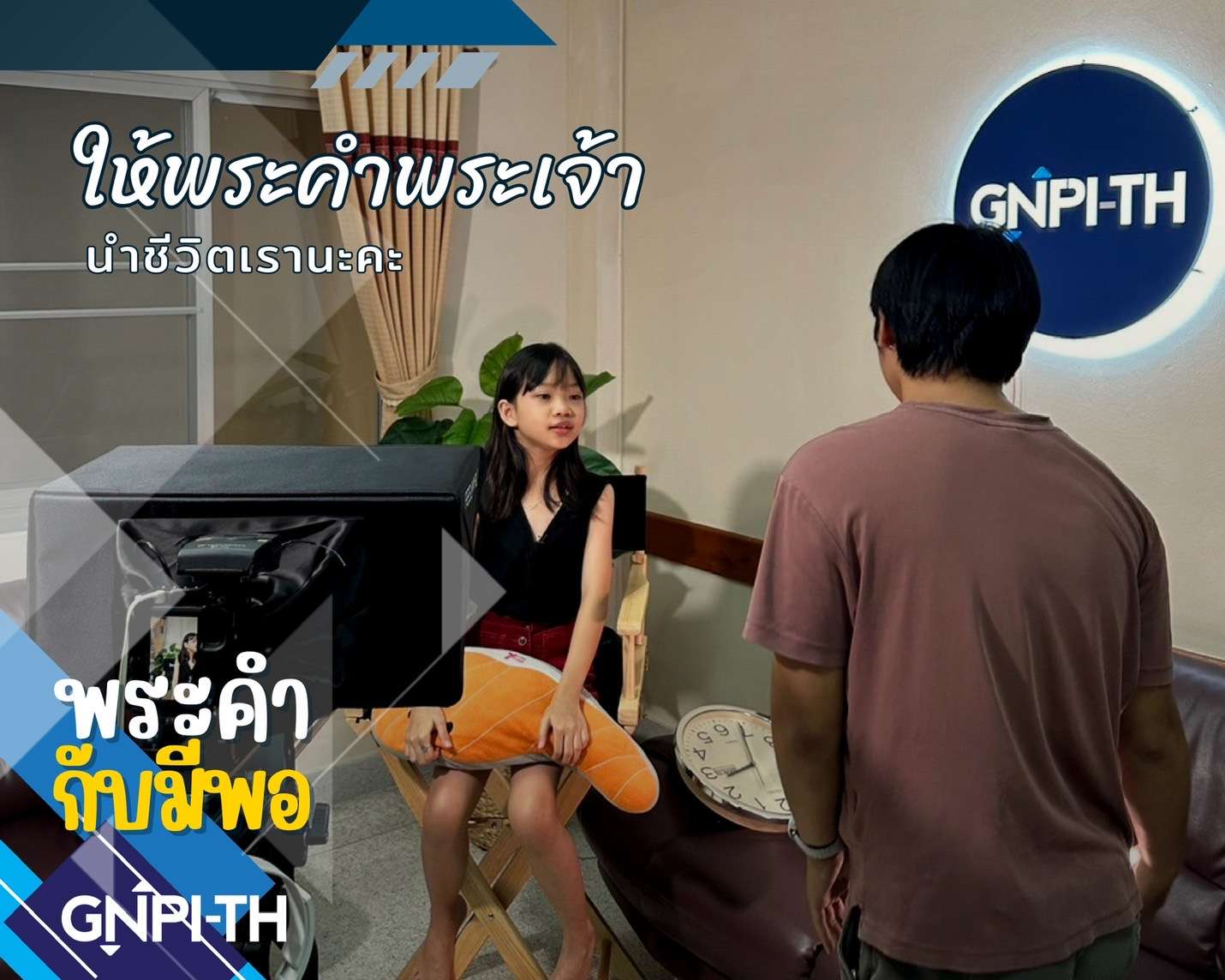
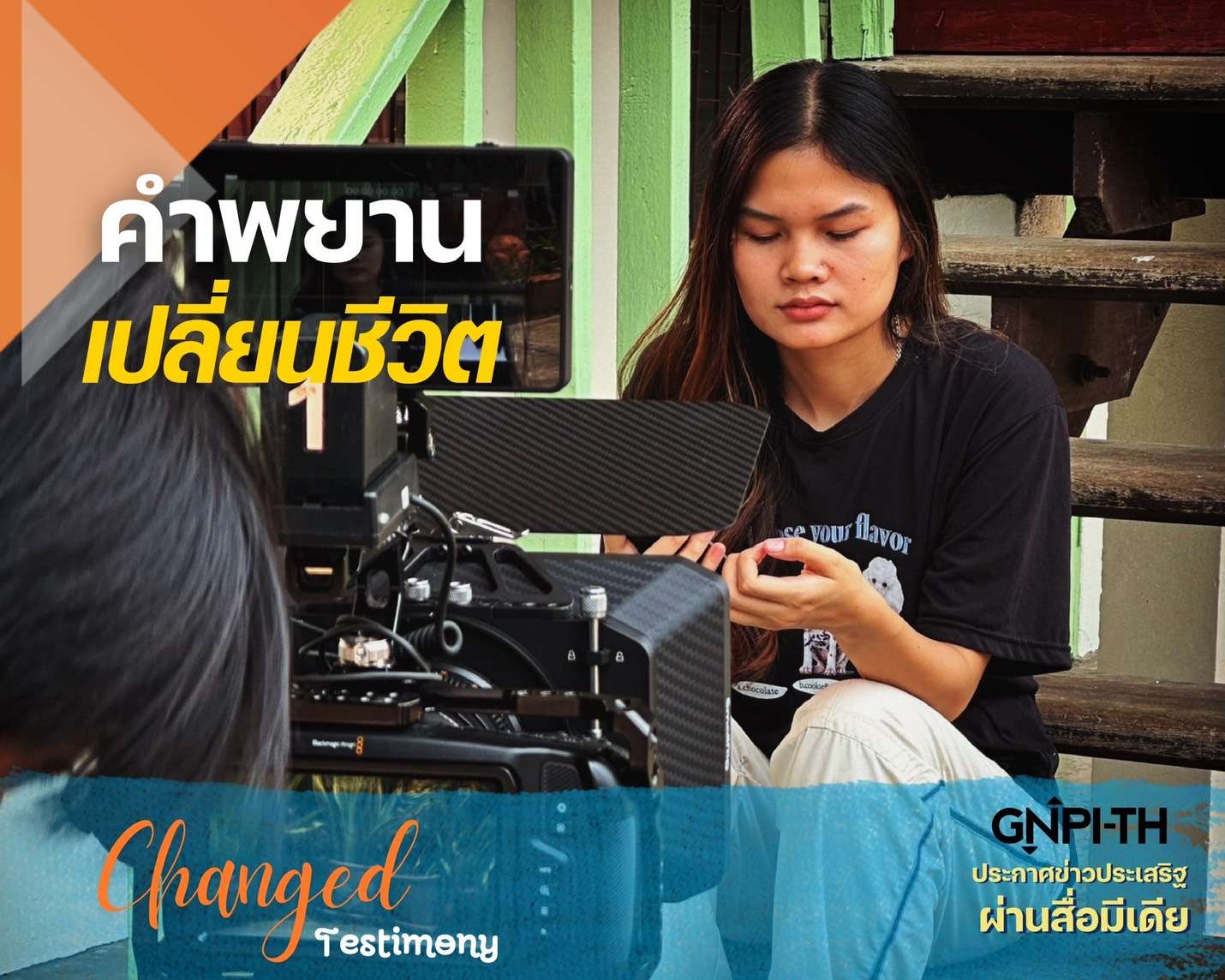
Thailand was a focus of GNPI as we received requests from Robert Morse and other Christian workers to create media for the Thai people. Many nationals from Chiang Mai had come to Bible colleges in the USA and were anxious to work on productions in several tribal languages.
GNPI partnered on two projects with Alan Eubanks who began the Christian Communication Center at Payat University in Chiang Mai. One project was to send engineers to set up their equipment, and the other was to help direct a production in the Thai language for high schools on the prevention of AIDS.
Tom Silkwood was a missionary in Thailand and saw the great need for visual communications in local languages. He began Freedom Films under the umbrella of the North Burma Christian Mission. With a spirit of partnership, Tom joined Ron Morse on a visit to GNPI in 1992. An affiliation agreement was drawn up, and the teamwork continues with those Tom trained before he passed away in 2016.
GNPI-Thailand strategically produces programs to reach the hearts of Thai Buddhists. Their projects range from music videos, short films, and sitcoms to projects highlighting Christian ministries and individuals changed by Christ. The team also travels around the country to train others in using media to share the gospel.
Kenya
1994

.jpg)
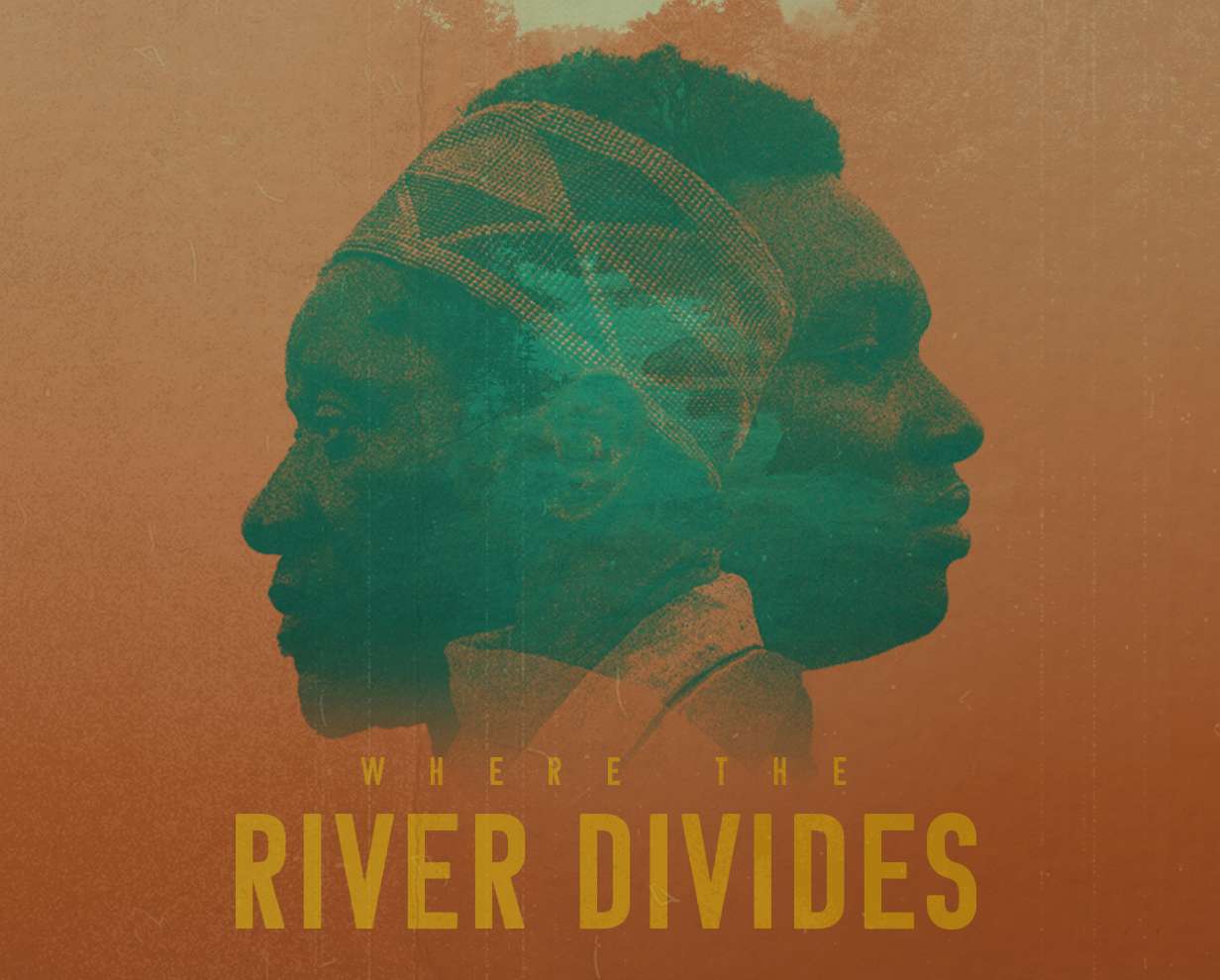
Kenya became a pivotal area from which to carry on the work of GNPI in Africa. As in other areas of Africa, there was an urgent need for culturally relevant materials, which could be produced on the field. A regional center made it possible to utilize the abilities of many national teachers and leaders attending Daystar University and facilitated the ongoing production of materials. Nairobi had been chosen for this team’s location as the result of a survey among Christian workers in Africa and proved to be an excellent choice.
George Pickens was working with the Rainbow Church of Christ, Daystar University, and the Nairobi Great Commission School. He worked with Mike Schrage, who was living in Kitale at the time, to help set up meetings in Nairobi to discuss the possibilities. Men from the Churches of Christ, Wendell Broom, Dennis Okoth, Jim Reppart, Sam Shewmaker, and others were a great help in determining plans for a major initiative. All felt a wonderful spirit of cooperation as plans were made for the future.
Production was already underway for the Pokot people, and many contacts had been made. Mike Schrage agreed to be the regional director and moved to Nairobi with his family to lay further groundwork and oversee the building of a facility. Groundbreaking was on November 18, 1994. Marvin Brandt and Marvin Forkner each spent several months on-site overseeing construction. Dedication services were held on September 9, 1995, with Rubel Shelly and Sam Stone as speakers. The Kirk Hayes family also moved from Kitale to Nairobi to work in the new center, along with some African staff members. George Pickens led us to contact Bob Sartoris who joined the staff after a few years.
Several filmstrip series were produced and the Solar Kits were used extensively. Video productions began, and the Kenya broadcast networks aired everything that could be produced.
Productions like “Tough Choices” inspired many and found their way on national television and into churches and schools. On May 9, 2002, a sequel teaching drama was launched in Uganda. The Honorable Miriam Matembe, Federal Minister of Ethics and Integrity in Uganda, spoke, “This is fantastic! I will make sure that this is seen by every child in every school in this country.”
Today, the GNPI team in Kenya shares gospel messages of peace, reconciliation, and hope through radio and TV broadcasts, text messaging, and social media. The team also disciples and mentors young people through media outreach gatherings in local communities and schools.
Mexico
1997


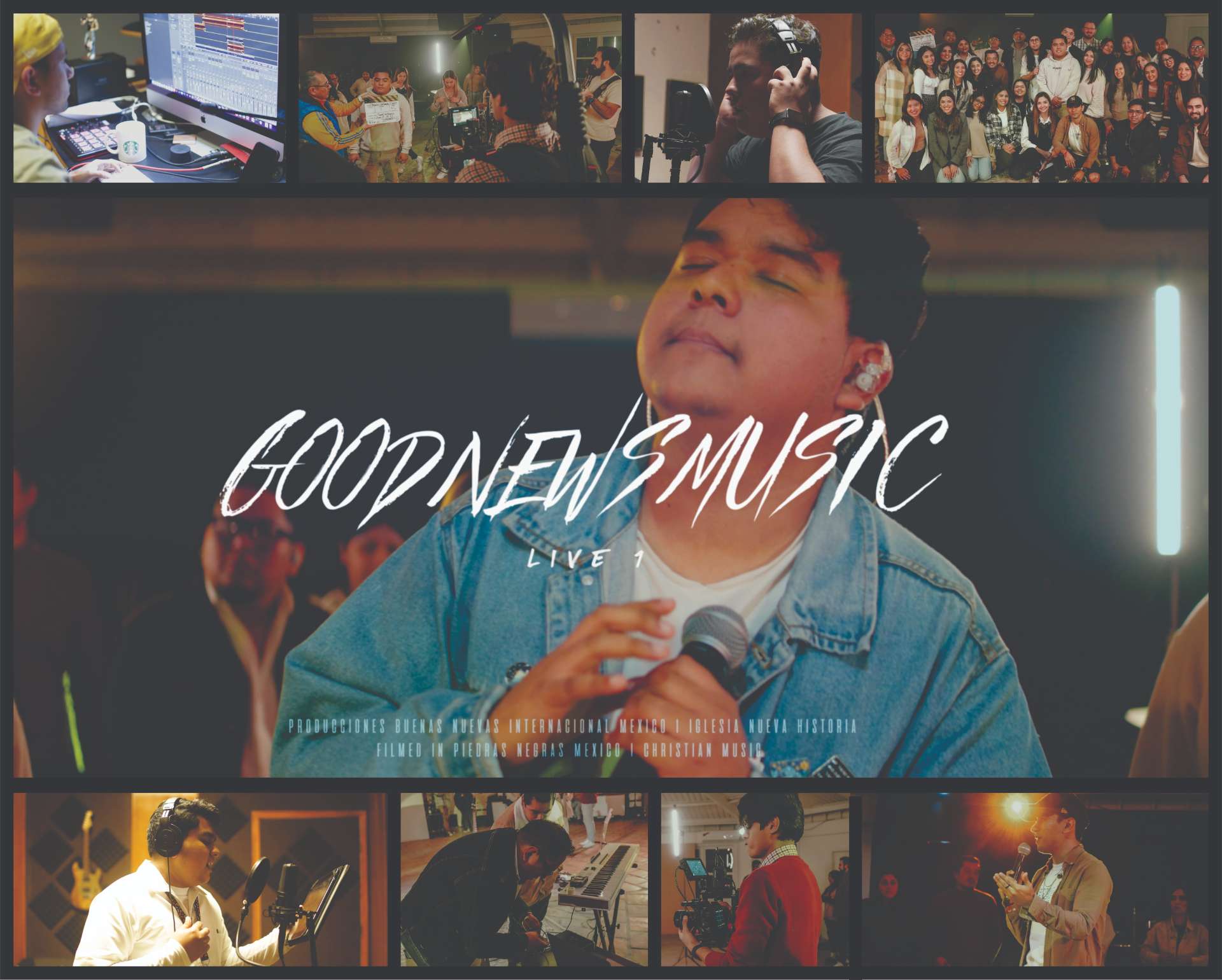
Spanish materials were some of the first to be produced in the Joplin facility. On June 6, 1977, 25 missionaries and national preachers met to discuss the use of filmstrips and videotape series in the follow-up program to a satellite project with NASA. The International Christian Mission Institute had started in Puerto Rico and also helped in this major outreach project. Bob Gurwell worked closely with GNPI from the beginning. He connected with Bill Morgan, a missionary to Puerto Rico, to coordinate many of these Spanish projects. Bob opened a temporary office in Eagle Pass, Texas, in 1996.
On April 14, 1997, a lease was signed with Colegio Biblico for the use of a building on their campus until a center could be built in Mexico. Tom Nutt took work crews down to remodel this building and then later to oversee the building in Mexico.
Many teaching series were being produced, along with a few teaching dramas. March 5, 2003, was an exciting day as a new program was launched in Monterey, Mexico, before a crowd of 800 people. On the same night, the announcement was made that Gustavo Velázquez was the new regional director for Mexico. Bob Gurwell was presented as the Director for Hispanic Advancement. By 2004, production work was being done inside Mexico, even before they moved into the new building in 2008.
Today, GNPI-Mexico shares God’s word through music, Bible teaching, and short films on cultural issues. They distribute these resources through various means, including Internet radio, social media, and church networks.
Philippines
1998

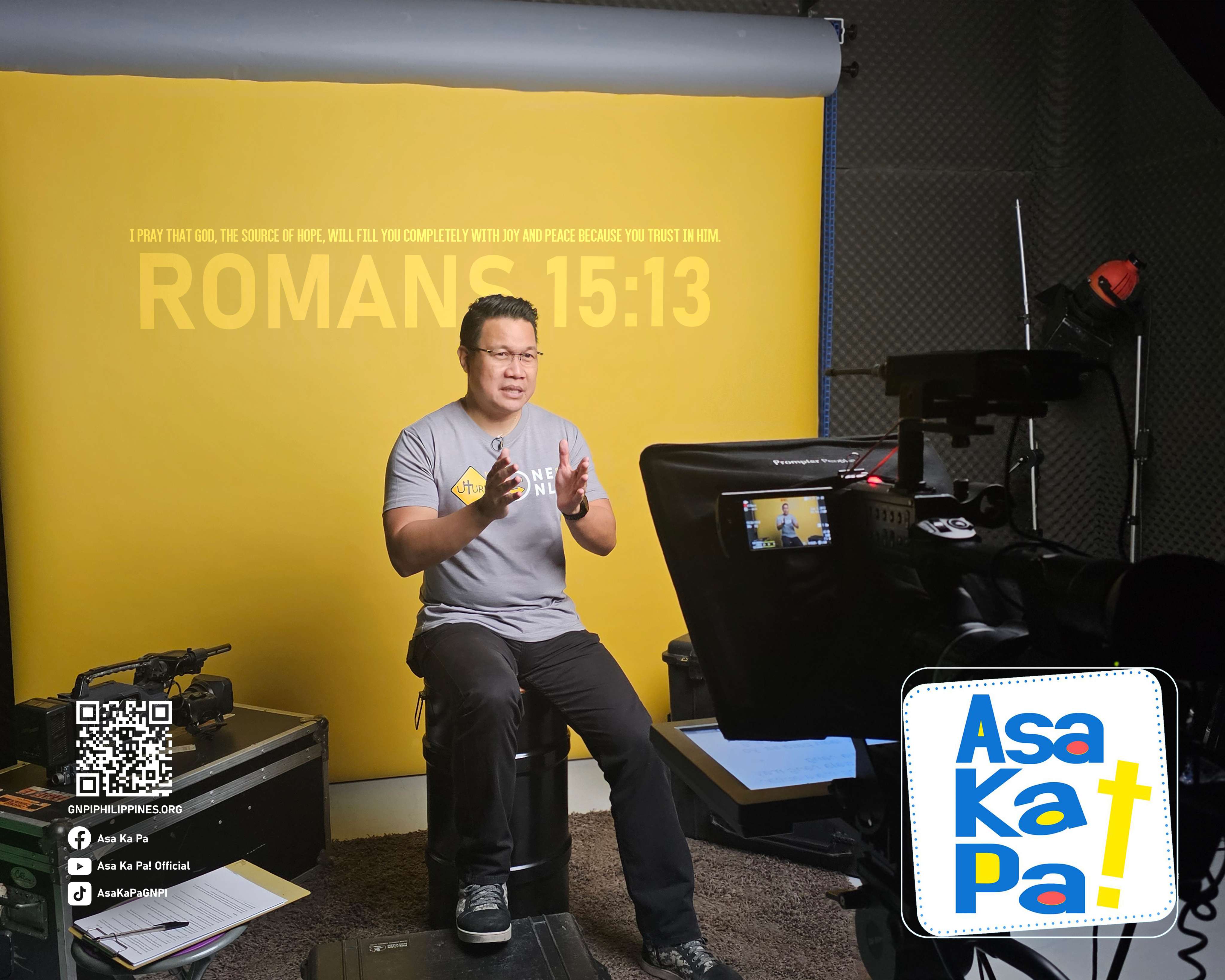
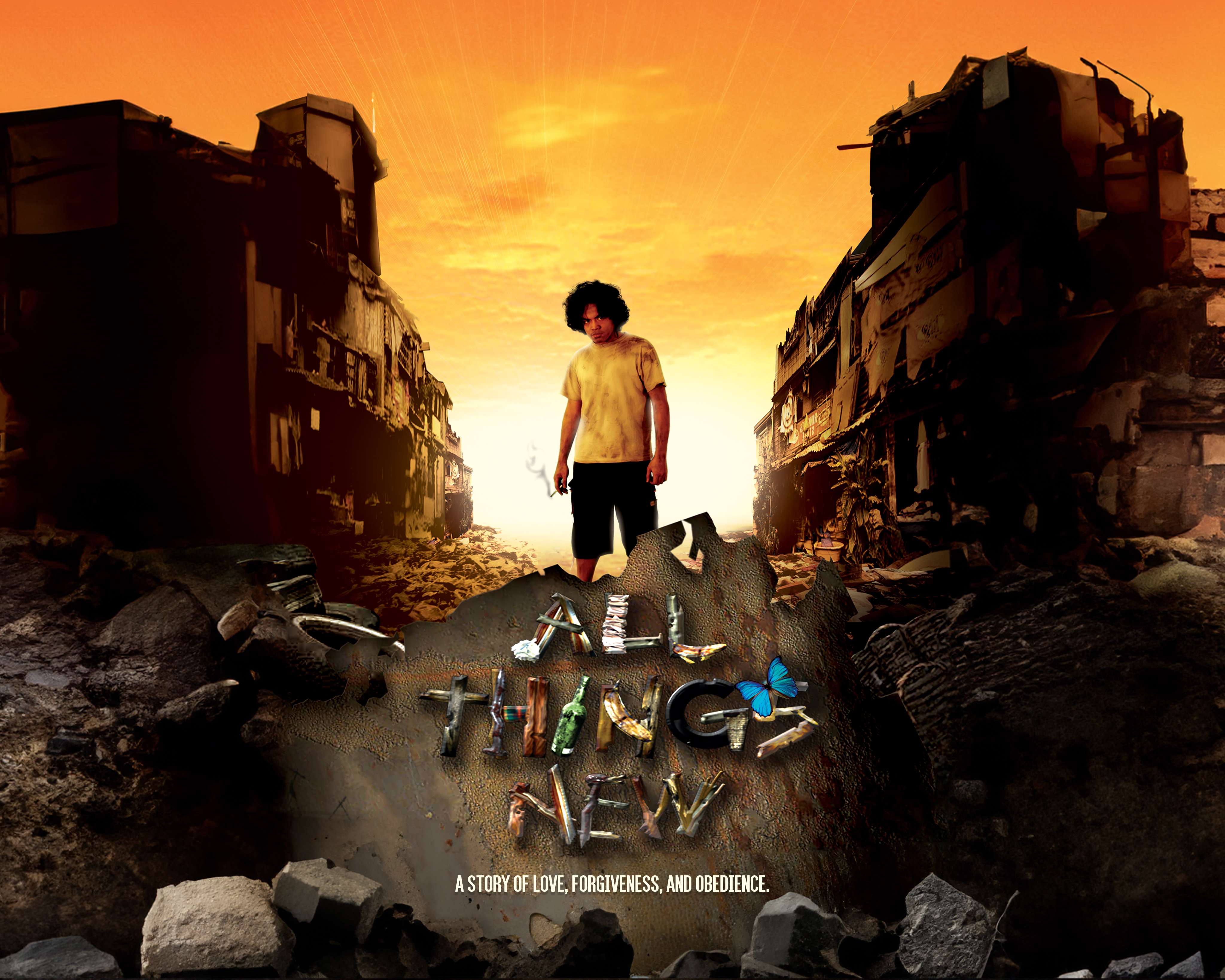
The Philippines has a long history of mission work by the Christian churches, and they were eager to partner with Good News Productions, International. Kevin Bryan went there, and to other countries, to do some initial productions, but the churches in the Philippines were anxious to have their own weekly broadcast.
Rich Sheeley and Donald Leow, GNPI partners in Singapore, helped lay the groundwork by frequently traveling to meet with the churches in the Philippines and to help in production. Work expanded with the weekly production of the “Salt and Light” program. The churches raised funds for broadcast expenses, and GNPI helped with production costs. Nenette Pacoli was hired full-time as the regional director and assembled a team of Filipino workers in 1998.
GNPI-Philippines has created several virtual communities on Facebook where people are refreshed by daily devotional lessons. As the impact has grown, pastors, church leaders, and even business owners use these short videos to encourage congregations, small groups, and employees.
Eurasia
1999
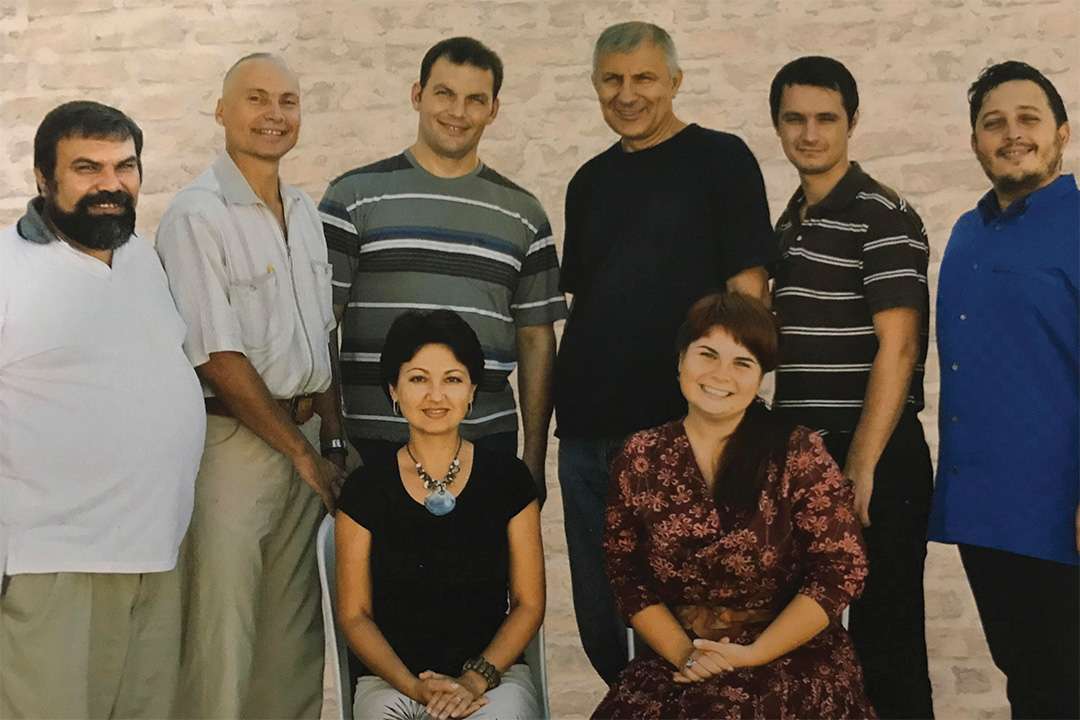
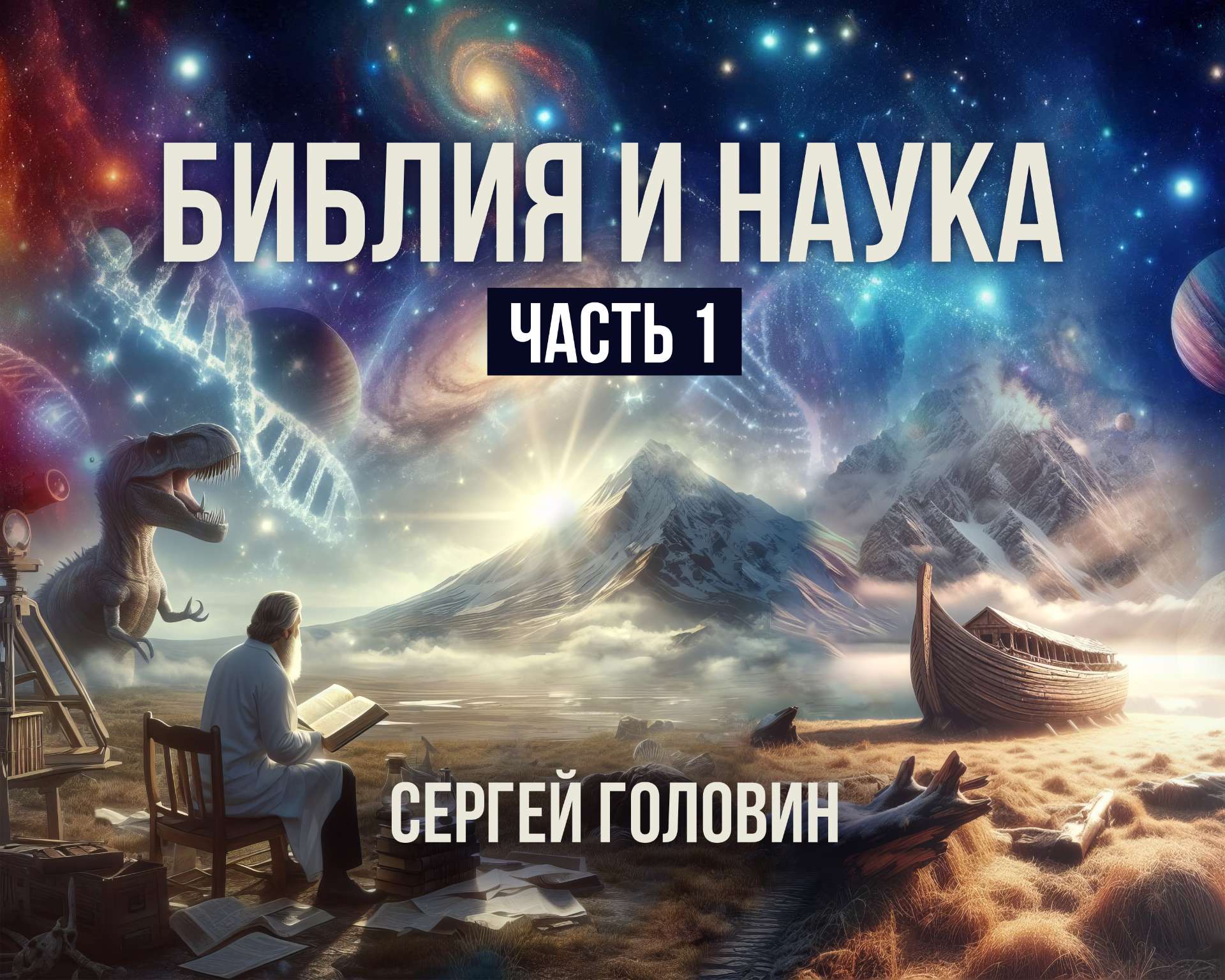
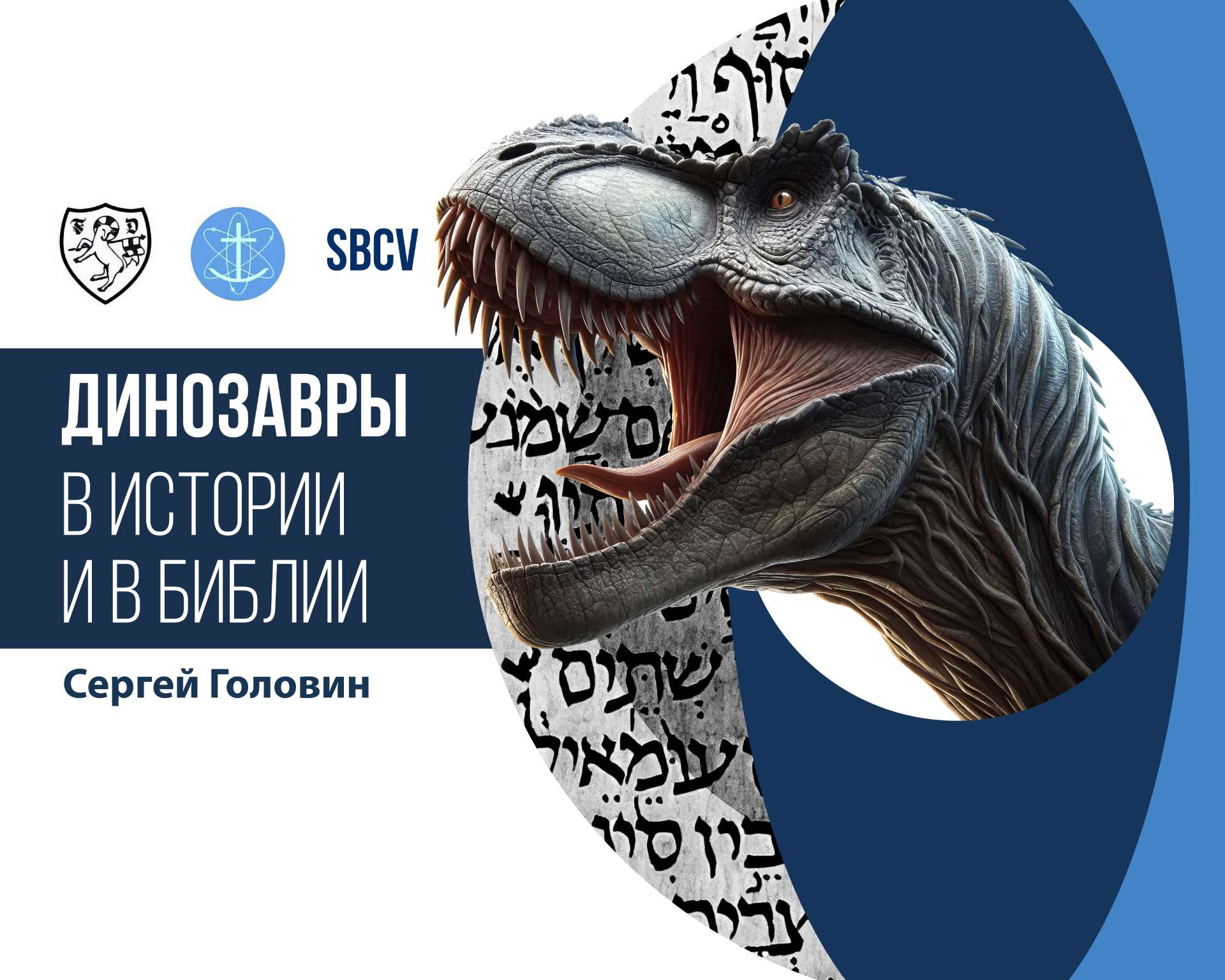
Ukraine came into its own with the collapse of the “Iron Curtain” or communism. However, a major issue was that, while the countries of the former USSR were open, many religious groups proclaimed different doctrines. The big question was, "We thought Christianity was one thing, and now we are confused by the conflicting doctrines. How can we know the truth?"
About the time GNPI was searching for someone who could address this question through the distribution of video lessons, Ziden was contacted by Georges Carillet of the Crimea-American College who told him of Sergei Golovin. Sergei read himself into the New Testament position while working as a geophysicist for the old USSR. He came back to Simferopol and found Georges.
In 1998 Ziden arranged for David Dunlap to go and tape a series on Science and the Bible. David was the son of a former Rhodesia missionary Owen Dunlap and a videographer in the USA. The success of this series led to a more permanent relationship with Sergei in May 1999.
This vision developed out of a real need, and God provided Sergei who was perfect to lead in this vision. Sergei immediately started producing more lessons on apologetics. Sergei got together with Michael Bundovsky with JISA TV and was offered a broadcast spot on TV. The previously recorded lessons were split into segments to answer questions asked of people interviewed on the street with Sergei as the host.
GNPI-Eurasia shares the gospel message through apologetic and leadership development resources. They currently use these resources to reach out to refugees, displaced people, and soldiers on the front lines as the war rages in Ukraine. The team focuses on the message of hope as they include direct evangelism in all their resources.
SE Asia
2002
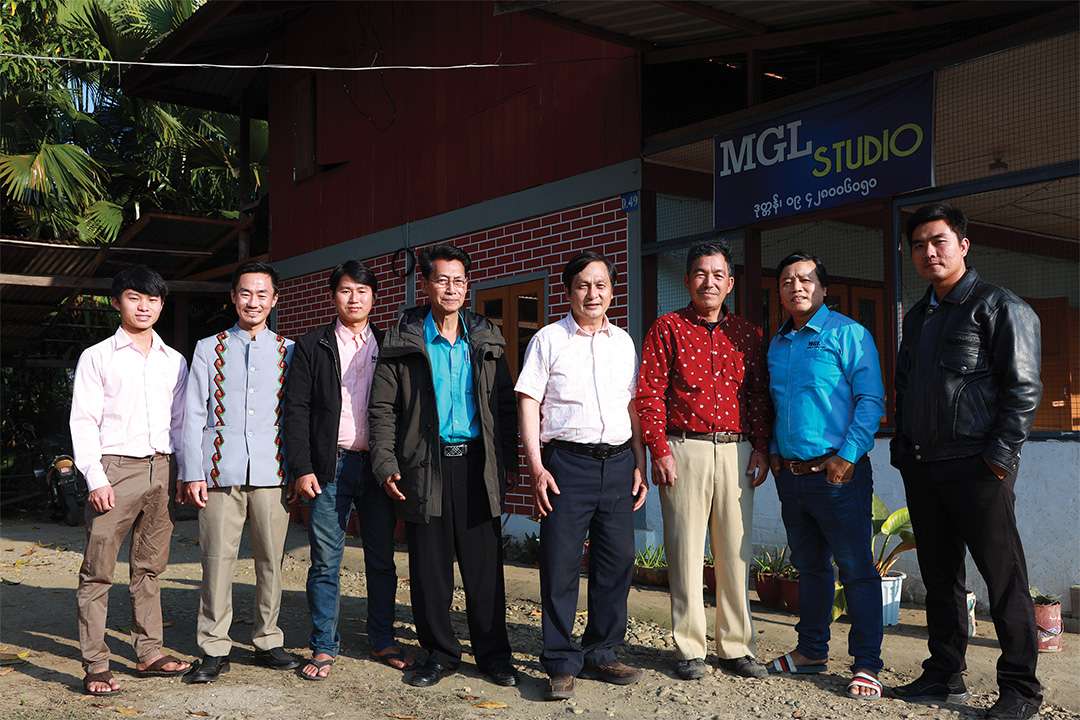
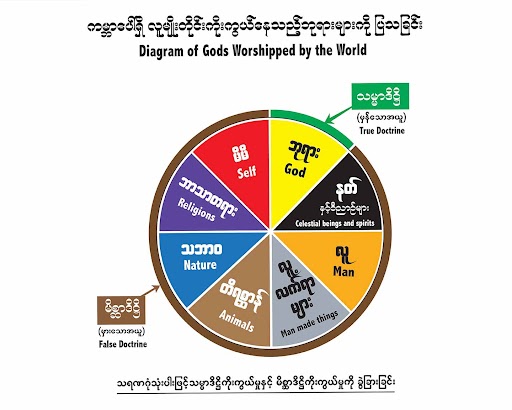
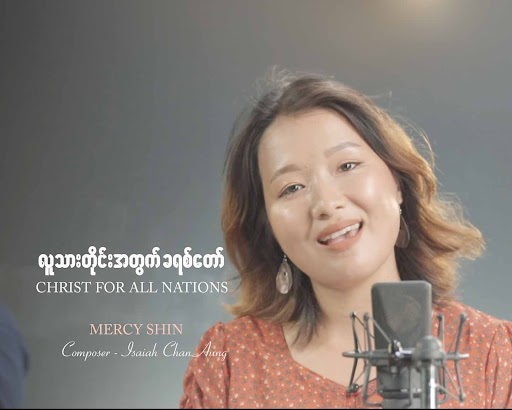
GNPI had been producing filmstrips for Southeast Asia through some of the international students who had been pointed to us by Robert Morse and other missionaries in Thailand. Ron Morse, Robert’s son, helped coordinate these efforts and also promoted GNPI among his supporters. The difficulty was getting equipment into this SE Asian country—not mentioned for security reasons. The potential was so great we were looking for other ways of getting the gospel into the local languages.
Ziden was particularly interested in Timothy Pungsar, a Cincinnati Christian University student, who sent a gift of 10 dollars each month to GNPI. Timothy later told Ziden that he started giving to the ministry because of a GNPI filmstrip he had seen in Rawang. This commitment was impressive and when Timothy asked Ziden to come and discuss the potential for more Christian content, he was eager to go. Timothy was serving as the Academic Dean of the Eastern Bible Institute. However, he felt that the work of GNPI was too crucial to pass up, so he committed himself to it and slowly phased out of the role of Dean to become regional director.
Video production was not an option at that time, but Timothy wanted to make Christian music tapes to use in large youth rallies where he would insert Bible verses and short thoughts between songs. On his third visit, Ziden asked David Lall to join him so he could research and give advice about the equipment that would be needed.
As things developed, Timothy and his wife, Maeram, secured the property where the GNPI studio is now located. New Mission Systems (now New International) helped provide money for the building so it could be larger and also serve as a church building and training center. Bill McClure wanted a place to do the recording for Gospel Broadcasting Mission and provided money for equipment. Dedication of the building was February 7, 2004.
GNPI-SE Asia produces video testimonies and tools to help Buddhists see that Jesus is the one true God. Despite the civil war in their country over the past few years, the team offers discipleship training and media production training throughout their region, resulting in new believers of all ages.
Uganda
2009

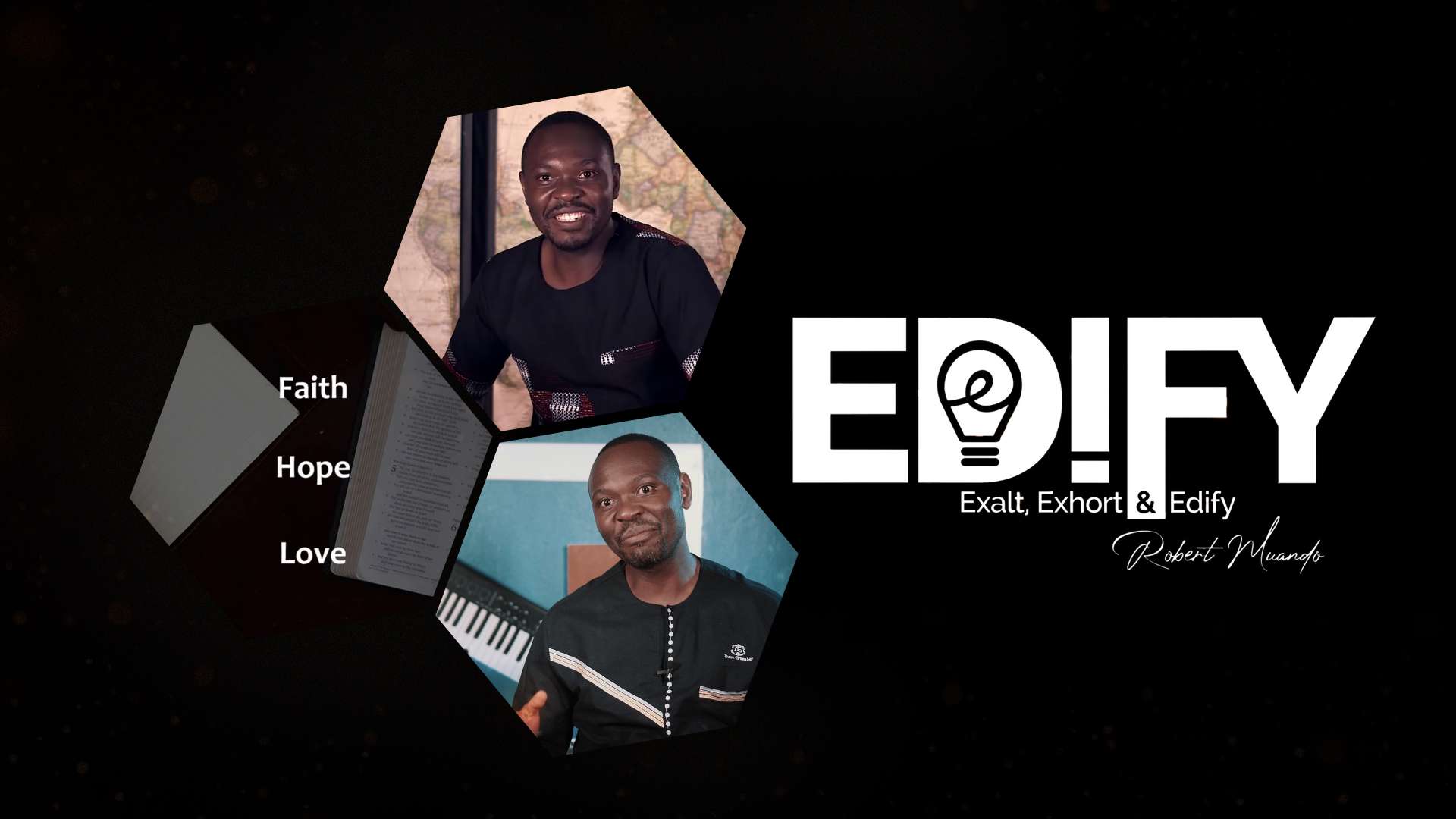
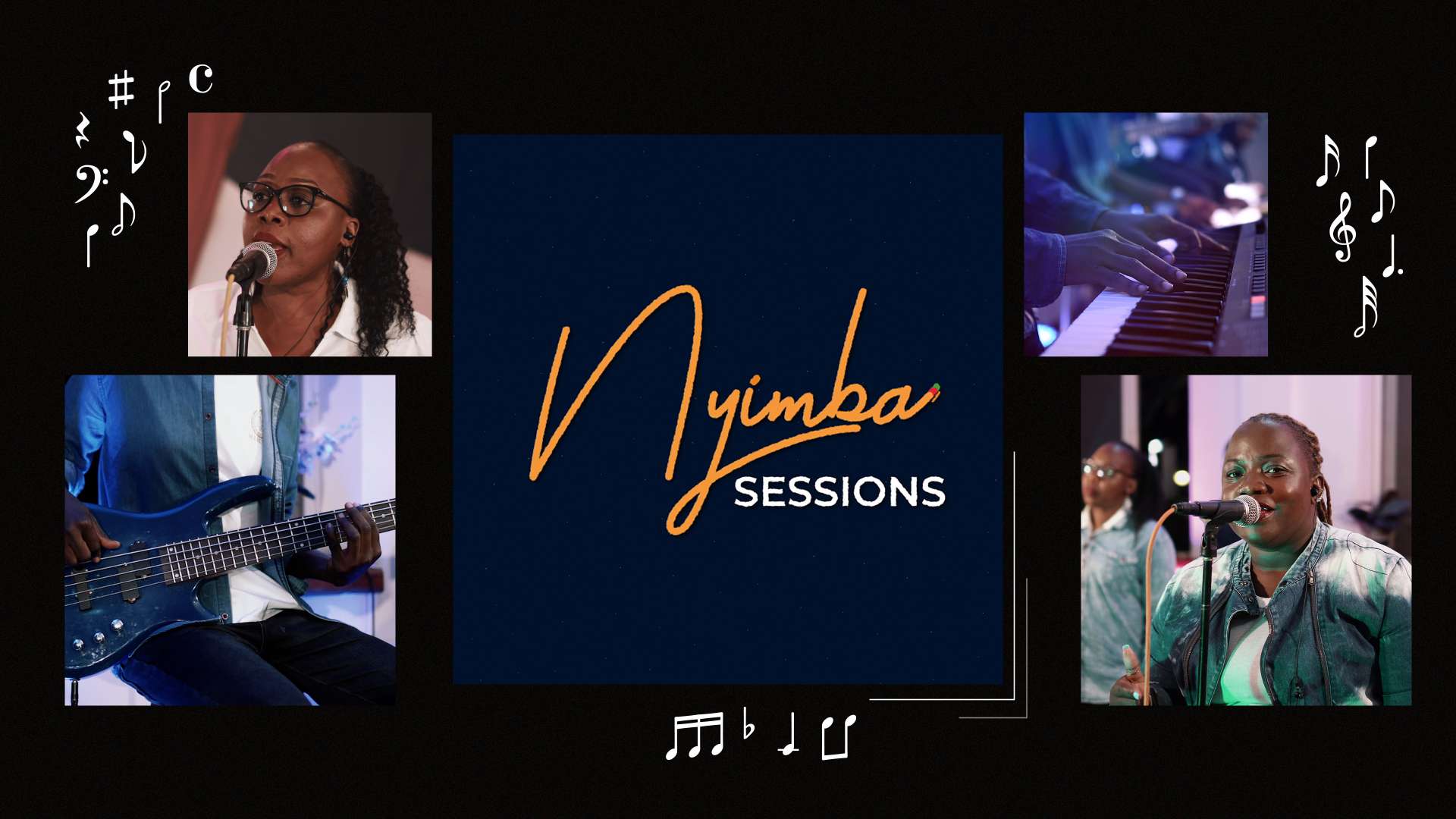
British Prime Minister Winston Churchill nicknamed Uganda the Pearl of Africa in 1908, and the country was thriving. In fact, at one time, most African doctors practicing on the continent were educated in Uganda. However, while independence from Britain was gained in 1962, decades of corrupt leadership caused Uganda to sink economically, socially, and spiritually. We praise God that the tide is turning as Christianity once again grows within the culture.
In 2009, missionaries in Mbale, Uganda, invited GNPI to build a production center to aid in multiplying their church planting efforts. The result? The number of church plants grew from 200 to around 1,000. These wise missionaries understood that media can accelerate global evangelism!
Today, GNPI-Uganda creates music videos, produces teaching series, and organizes a Solar Kit exchange program for Christian leaders. They train leaders to use the Solar Kits and collect feedback about outreach efforts. The team enjoys ongoing partnerships with organizations to offer content for churches.
The team also works to train and equip students at nearby LivingStone International University and Messiah Theological Institute. GNPI-Uganda is strategically located in a city with two growing Christian universities in a country that is being revived!
Project Nomad
2009 - Present
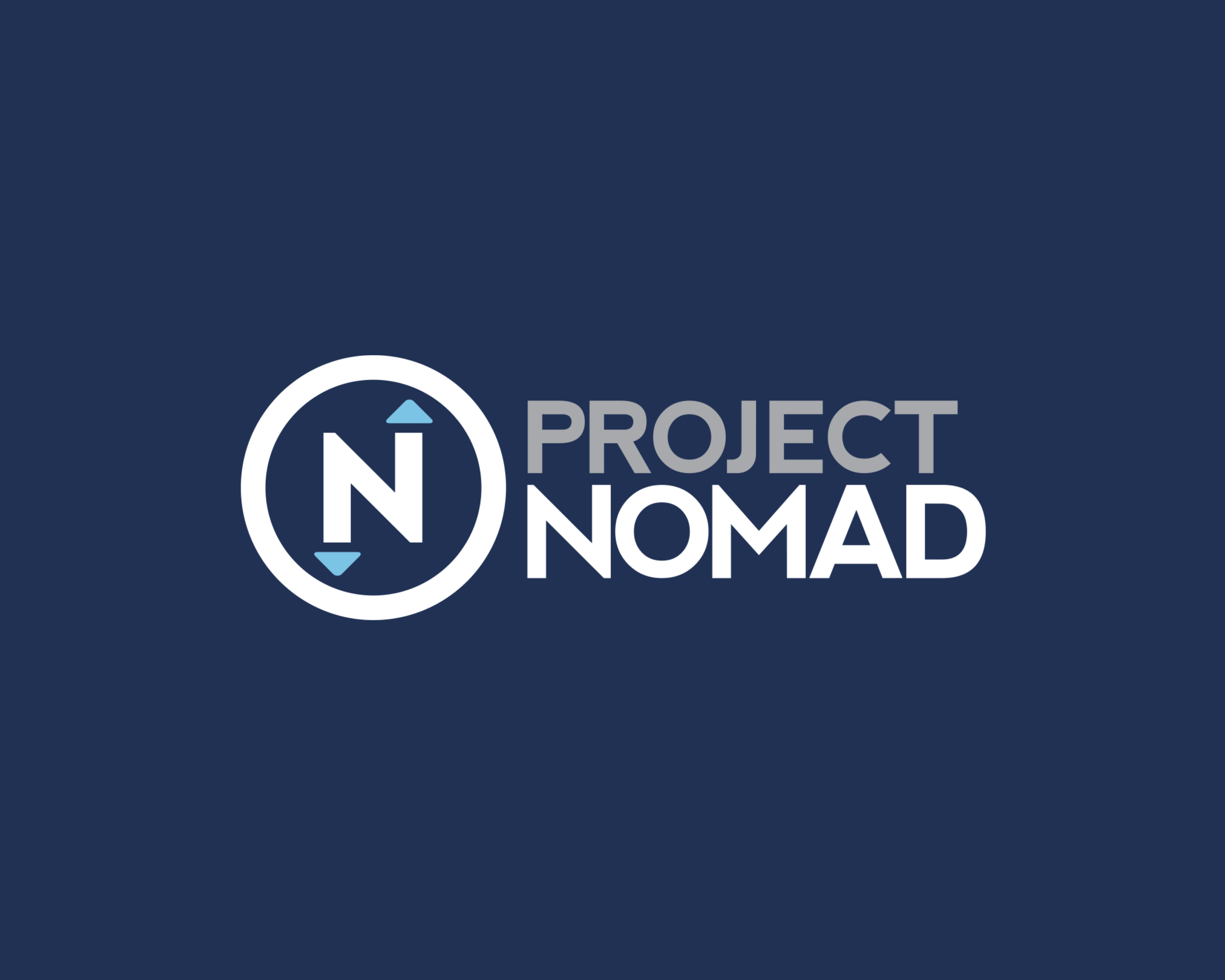
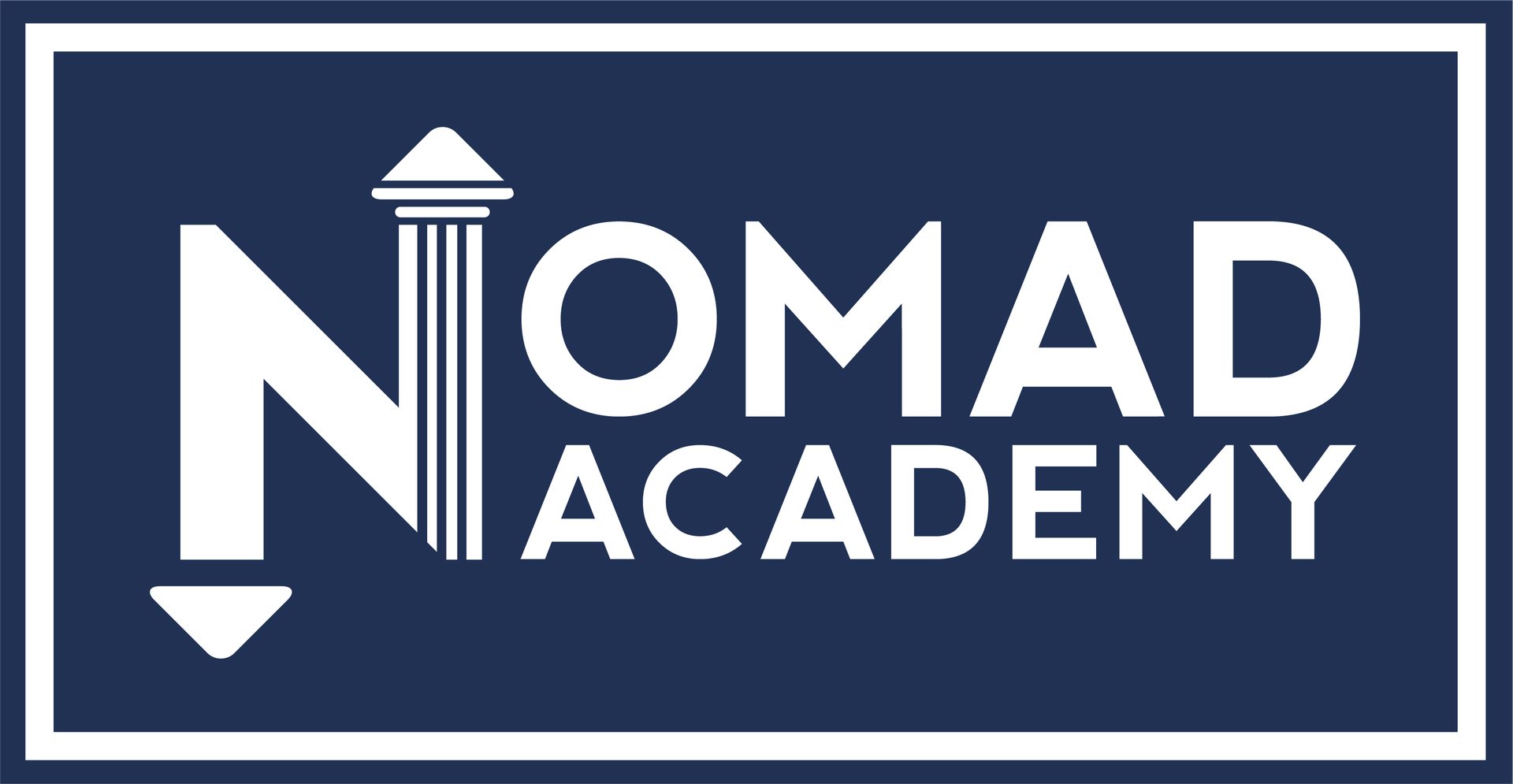
With over three billion people still waiting to hear the Good News, GNPI realized that it was necessary to train local people to create media and share Jesus exponentially.
The seed was planted for grassroots media teams to fulfill this purpose.
God has grown this vision to encompass in-person training (Project Nomad), an online academy (Nomad Academy), and an ever-growing network of teams (Nomad Teams).
Nomad Teams use simple tools, like a phone and the Internet, to create and distribute content for huge impact.
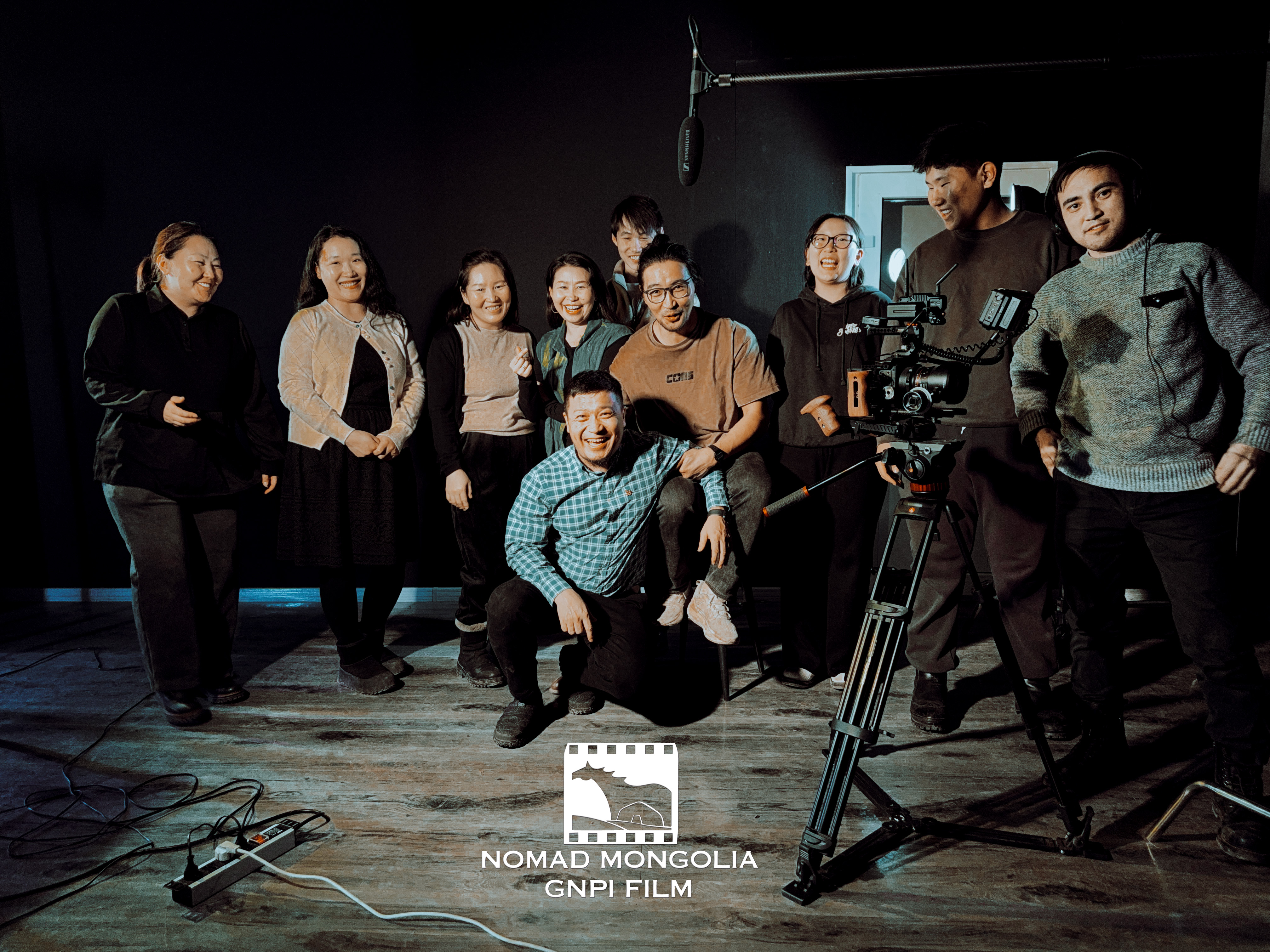
Chogtoo Sukhbaatar (center person) from Nomad-Mongolia specializes in training university students and local church leaders as well as creating multiple productions.
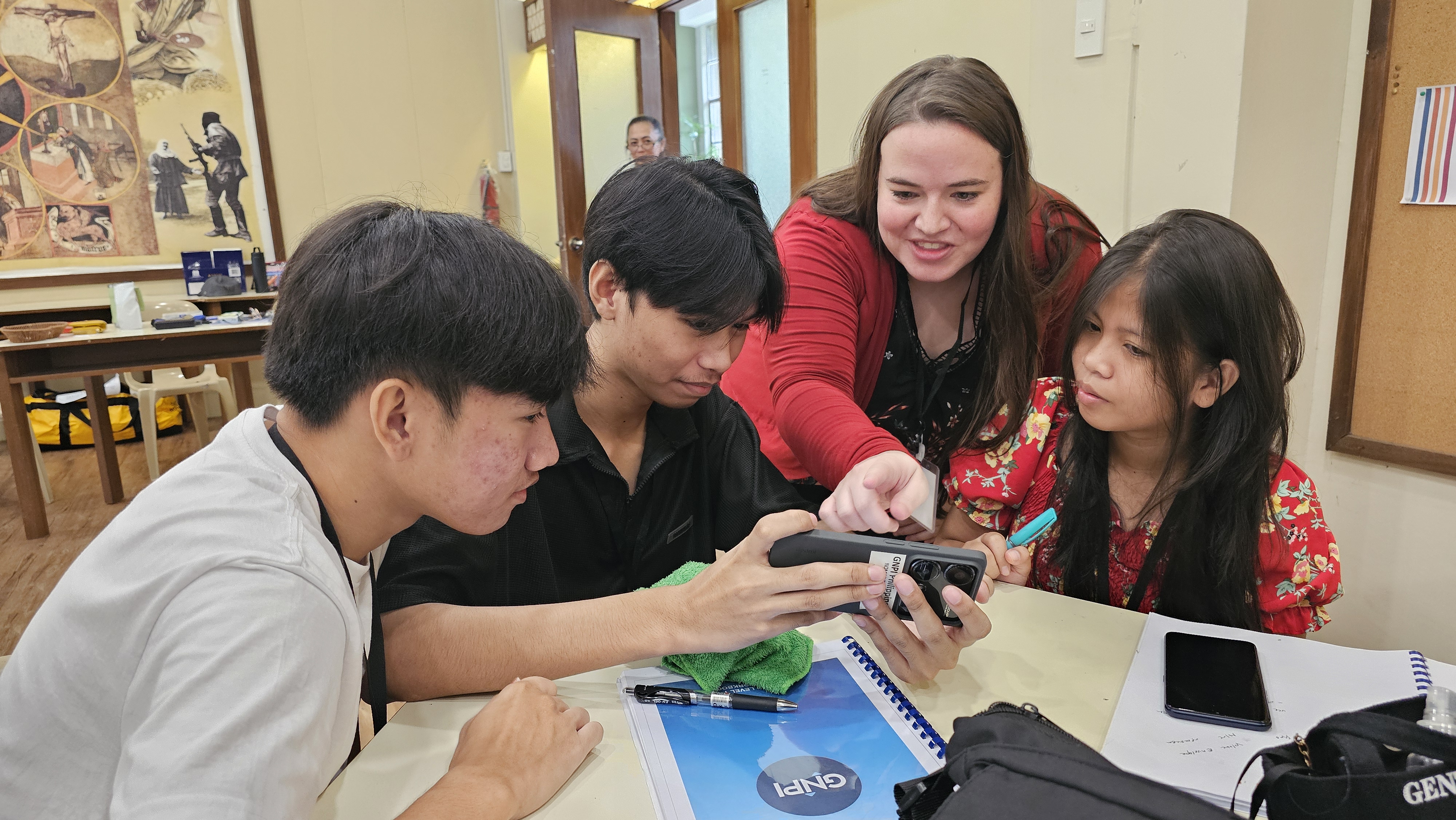
Angela Morse, Nomad coordinator-Southeast Asia, travels to lead in-person trainings, such as this one.
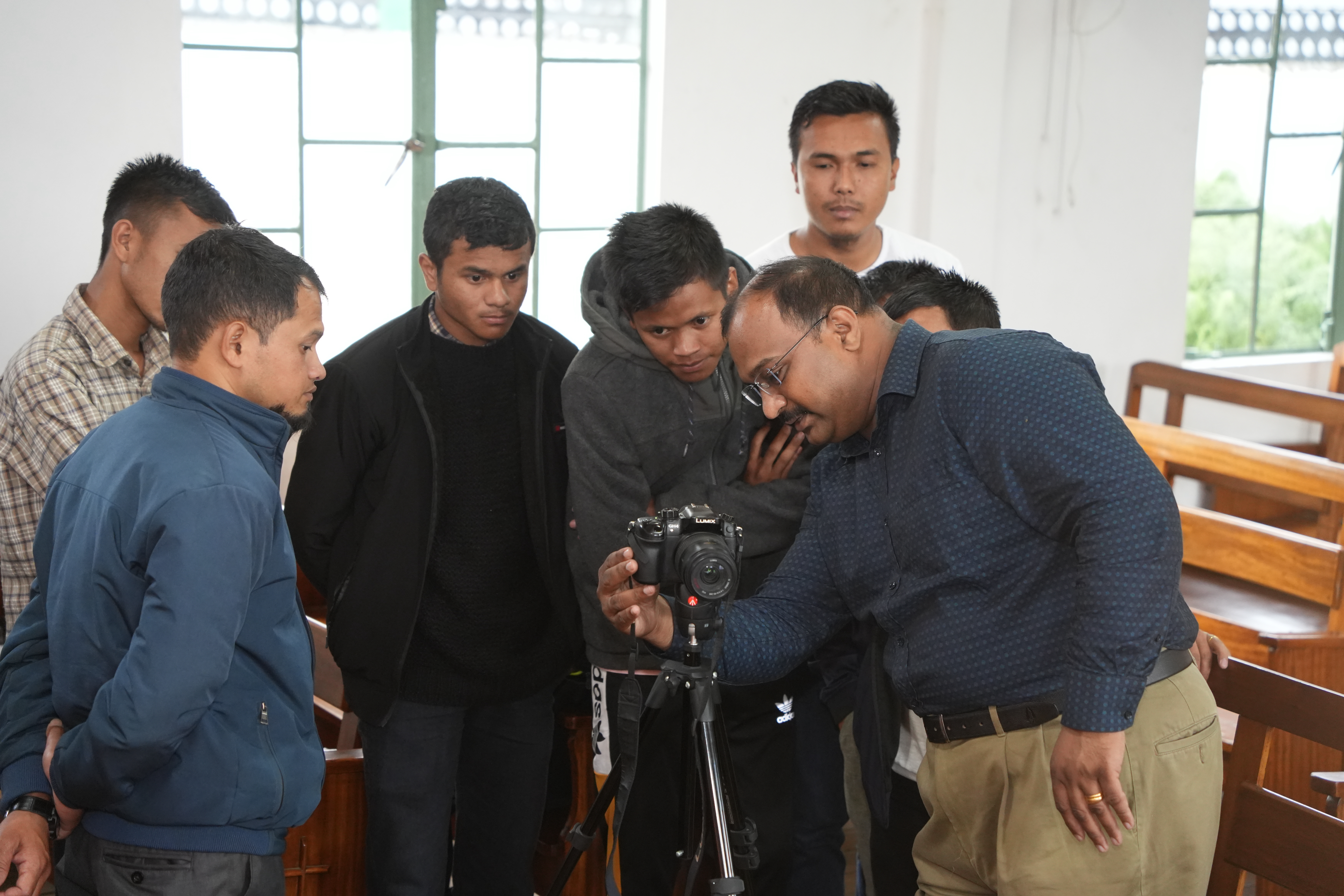
GNPI currently has four Nomad teams in India. The goal is to establish a team in all 28 states.
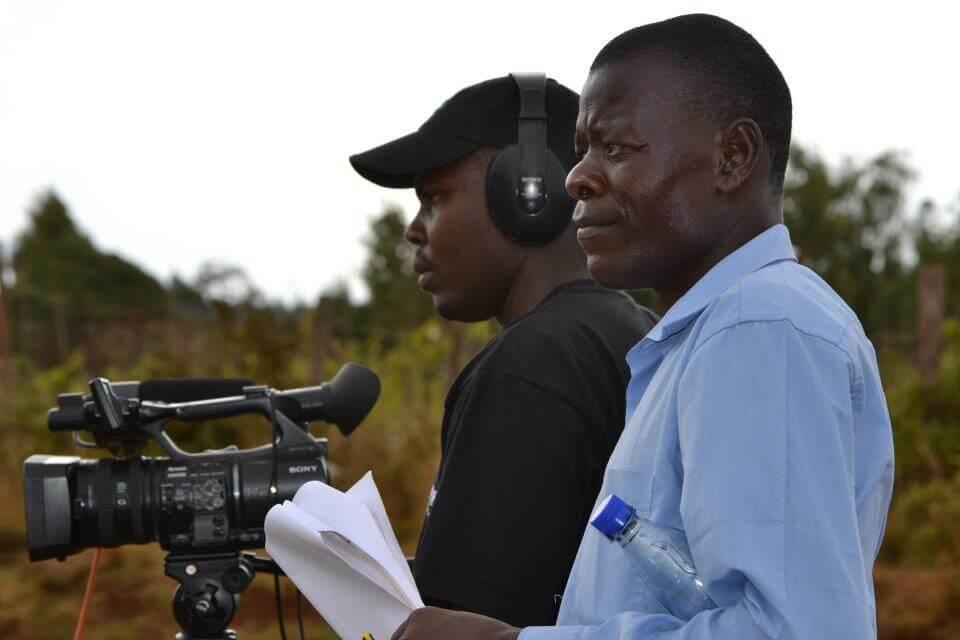
Protus Sibukule (front person) continues to lead the first Nomad team, established in 2009, in Eldoret, Kenya.
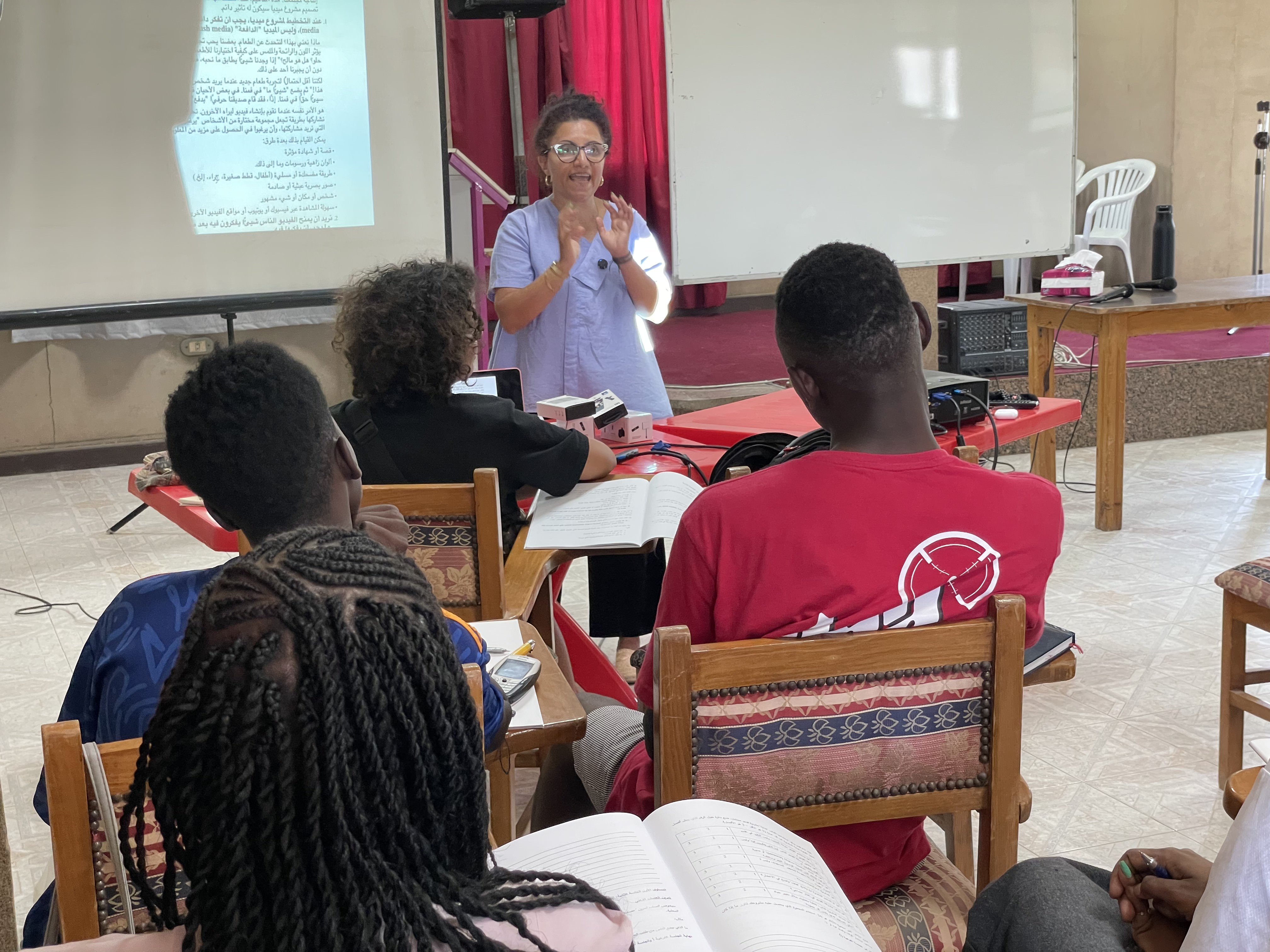
Lilian Ramzy, Nomad coordinator-MENA, facilitates the first training for Sudanese refugees in Egypt.
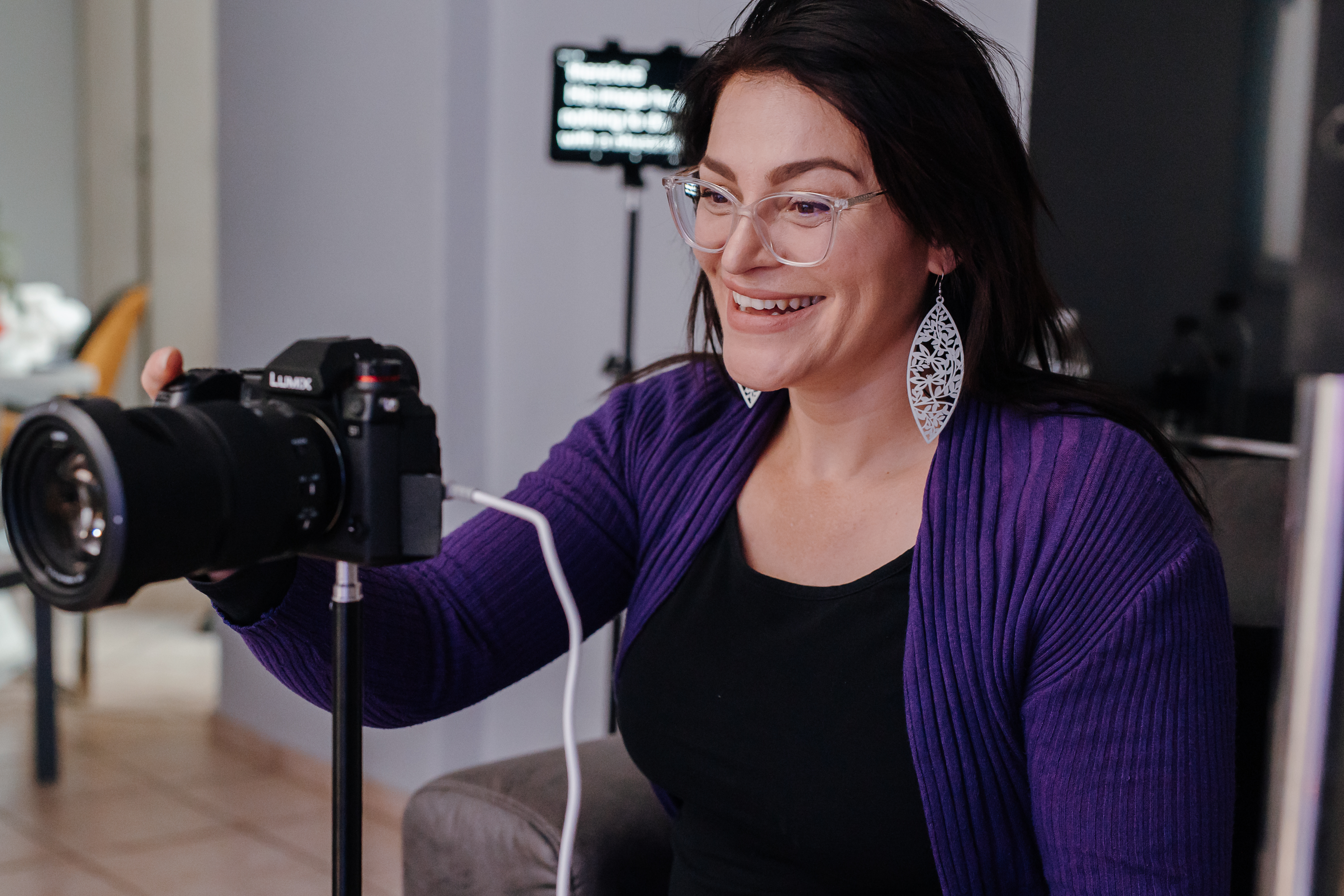
Nomad-Johannesburg works full-time to create culturally relevant biblical content for South Africa.
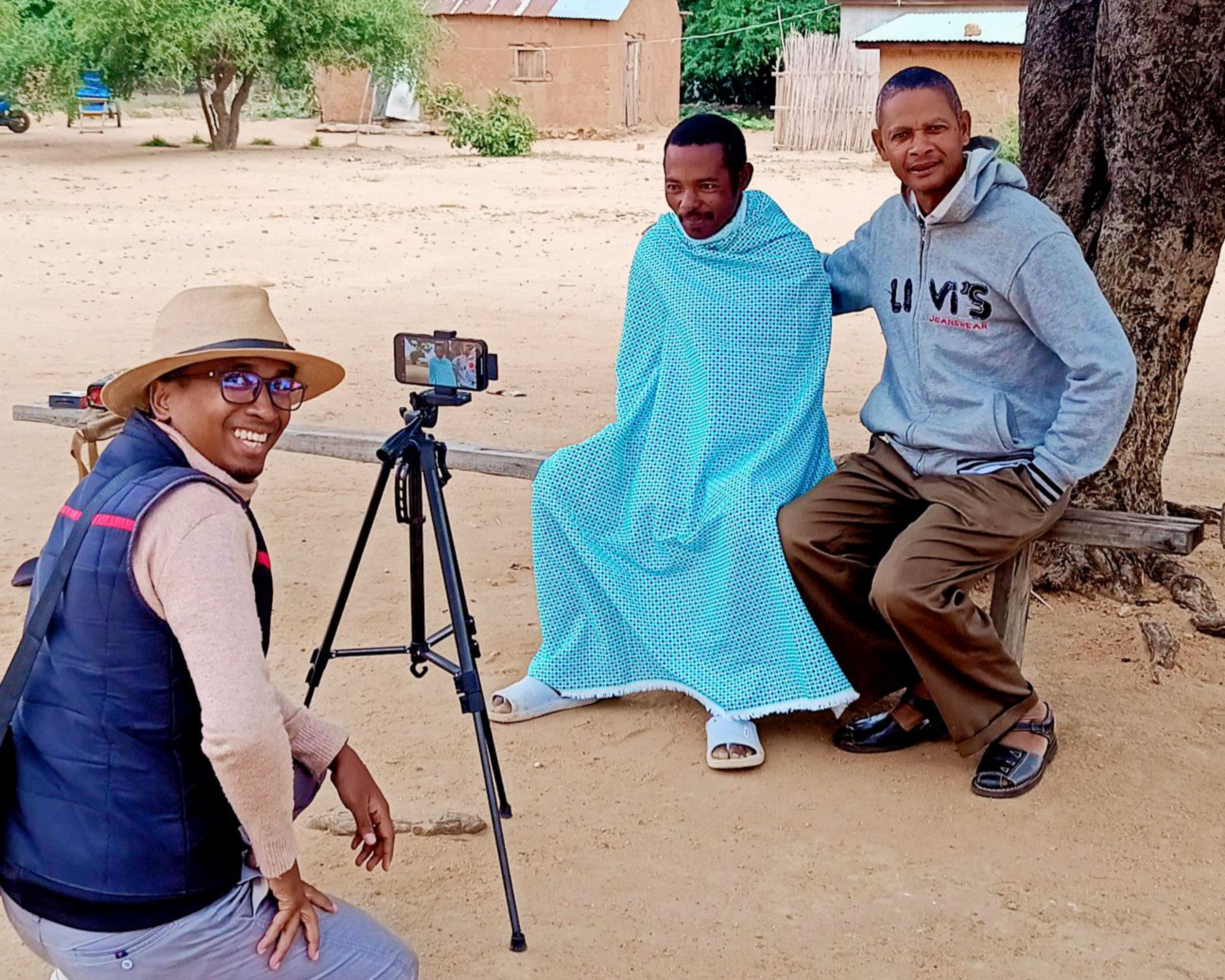
Fernando Basso (not pictured) leads Nomad-Madagascar. His team uses media to take the gospel to every unreached people group in his country.
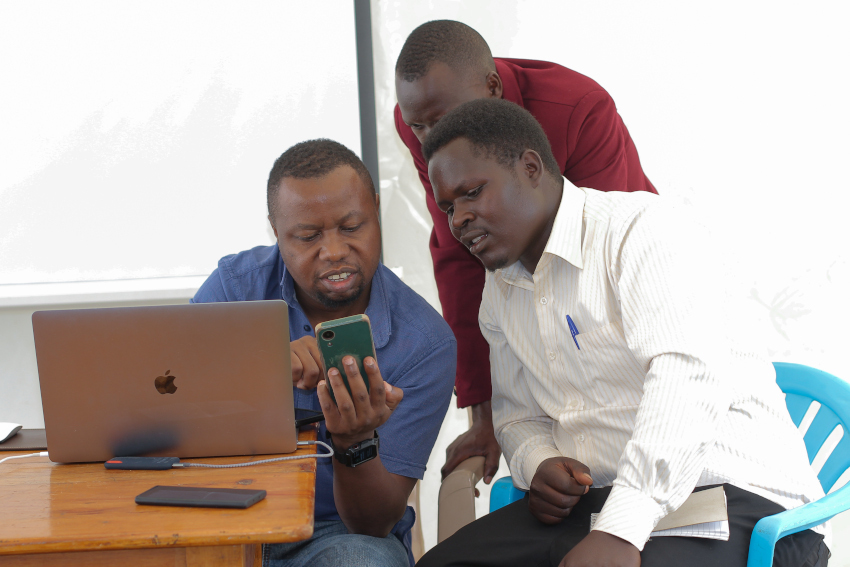
Isaac Masiga (pictured holding phone) oversees all of Nomad in Africa and Nomad Academy, training the next generation of future Nomad teams.
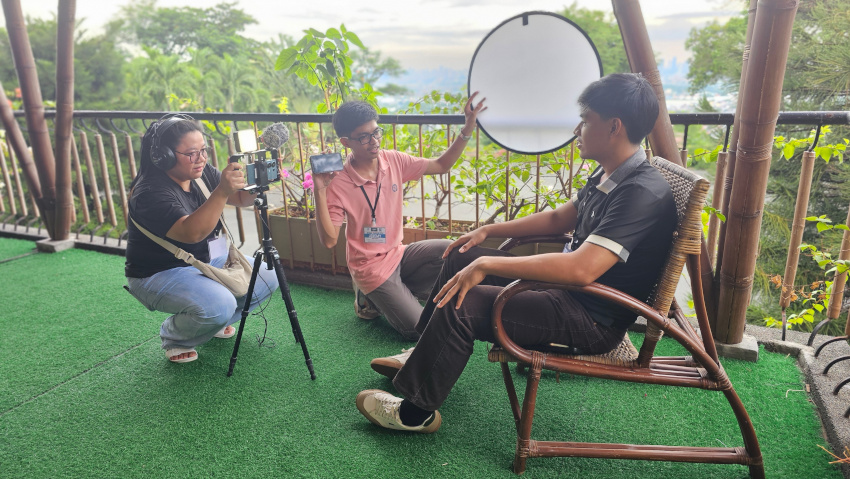
GNPI-Philippines offers advanced Nomad training, resulting in Nomad-Rizal, with more teams to come.
Nomad-Pachuca, one of the oldest teams, continues to grow and produce biblical media to influence Spanish speakers in Mexico and beyond.
The GNPI family has grown to include more than 25 teams in 17 countries. All of them, both Regional Centers and Nomad teams, are creating media in more than 100 languages and sharing Jesus with millions worldwide.
Related Videos
A Living Testimony (4:14)Dennis Okoth of GNPI-Mbale, Uganda, has served as the interim regional director. His own parents tried to poison him when he gave his life to Christ and became vocal about his faith. Dennis continues to serve the people of Uganda despite multiple home invasions and threats to his life.
Answer to Prayer (2:13)Timothy P. of GNPI-SE Asia quit his high school teaching job to attend Bible college and focus on sharing the Gospel. He traveled on foot or by bicycle to talk with the people in his country. Then he prayed for God to show him a faster way to penetrate the nation. Timothy found media to be one of the answers to his prayer and boldly shares Christ with Buddhist leaders.
The Best Strategy (4:06)Dr. Sergei Golovin of GNPI-Eurasia has developed special approaches to minister in restricted areas for the last 20 years. He says media provides the opportunity to overcome limitations in these areas. Sergei is an internally displaced person whose apologetic training is online and impacts people across 10 time zones of Europe.
God Never Left Us (2:03)Sergei and Olga Golovin of GNPI-Ukraine reflect on God’s faithfulness in their lives, despite the turmoil in their country.
The Timothy Project (3:15)Timothy P. of GNPI-SE Asia shares his explanation to help Buddhists know the true God and his plan to train leaders in SE Asia with disciple-making resources.